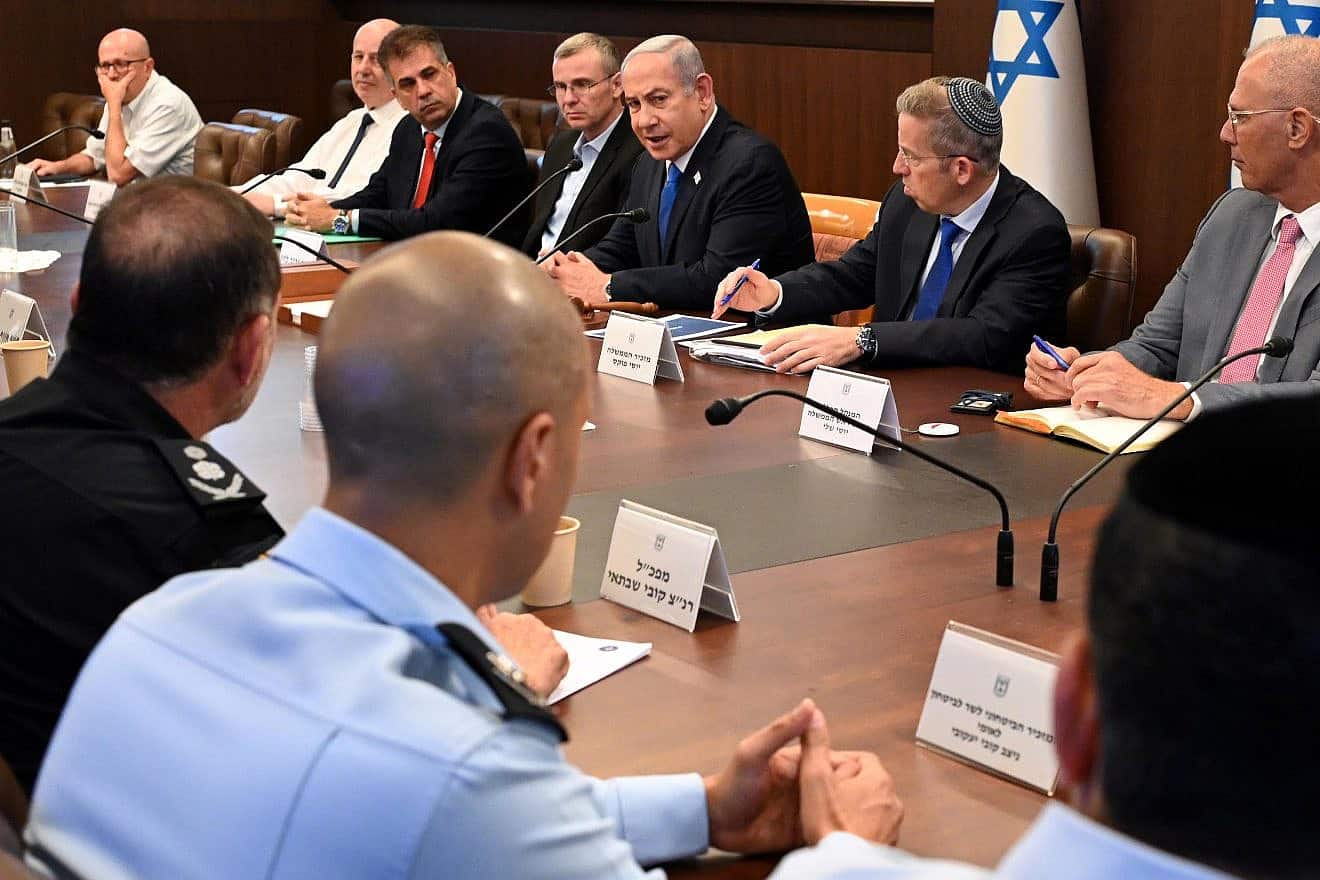
Israeli ministers met on Sunday morning to discuss the government’s response to the previous day’s violent riots in Tel Aviv between rival Eritrean factions.
More than 170 people were injured, including 49 police officers, when a demonstration by Eritrean asylum seekers against an event at the Eritrean embassy in the southern part of the city turned violent.
Rocks, clubs and other weapons were used against police and other rioters, and local businesses and parked vehicles were vandalized.
Officers deployed riot dispersal tools, including tear gas, but resorted to live ammunition when these proved ineffective, fearing for their lives, according to police. Thirty-nine arrests were made, with more expected in the coming days. An internal police investigation was opened into the incident.
Following the riots and the crush of injured people requiring hospital treatment, the Magen David Adom emergency response organization pleaded with the public to donate blood, and crowds showed up on Saturday evening at Ichilov Hospital (Tel Aviv Sourasky Medical Center). The hospital’s administrator, Professor Ronni Gamzu, earlier said that the hospital was dealing with a mass casualty event.
One officer was listed as being in serious condition at Sheba Medical Center in Ramat Gan after doctors removed part of a camping stove from his head.
“Following the severe disturbances in Tel Aviv, Prime Minister Benjamin Netanyahu has decided to convene a special ministerial team to examine measures to be taken against illegal infiltrators who took part in the disturbances, including steps toward deportation,” the Prime Minister’s Office said in a statement.
At the meeting, Netanyahu said that Saturday’s violence “crossed a red line,” according to a readout of his remarks.
“This disturbance, the bloodshed, these are things that we cannot tolerate,” the premier continued.

“Therefore, the first thing that I am doing is to wish a full recovery to the police officers who were injured in the effort to restore order. We are seeking strong steps against the rioters, including the immediate expulsion of those who took part. It is hard for me to understand why we would have a problem with those who declare that they support the regime; they certainly cannot claim refugee status.
“I would also like this forum to prepare a complete and updated plan to repatriate all of the remaining illegal infiltrators from the State of Israel; this is the purpose of our meeting today.”
Netanyahu credited the security fence built at the Sinai border with stopping infiltrators from Africa who he said “constituted a tangible threat to the future of Israel as a Jewish and democratic state.” He also pointed the finger at the Supreme Court, sitting as the High Court of Justice, for blocking efforts to find a solution.
Netanyahu echoed other members of the ruling coalition who on Saturday blamed the Supreme Court for creating the situation that led to the riot.
“If anyone had a doubt as to why the [judicial] reform is so important and what we are fighting for, they received a crushing answer to that today,” said Justice Minister Yariv Levin.
“We are fighting for the state to be Jewish and democratic. On the right of the residents of South Tel Aviv and Eilat to live safe lives. That South Tel Aviv will not turn into the Wild West. The government led and the Knesset enacted many laws over the years designed to deal with the phenomenon of infiltrators, but the High Court overruled these moves again and again,” he said.
Eritreans have recently rioted in other cities around the world, including in Calgary, Canada on Saturday. In Stockholm last month, anti-regime protesters stormed an Eritrean festival in the Swedish capital, leaving more than 50 injured and dozens arrested.
In both Stockholm and Tel Aviv, opponents of the Eritrean regime were authorized to hold protests before chaos ensued.
Human rights groups describe the Horn of Africa country as one of the most repressive in the world since breaking away from neighboring Ethiopia three decades ago. It is ruled by President Isaias Afwerki. Many have fled from the country’s mandatory military conscription.
The clashes are centered around events this year marking 30 years since Eritrea separated from Ethiopia.












